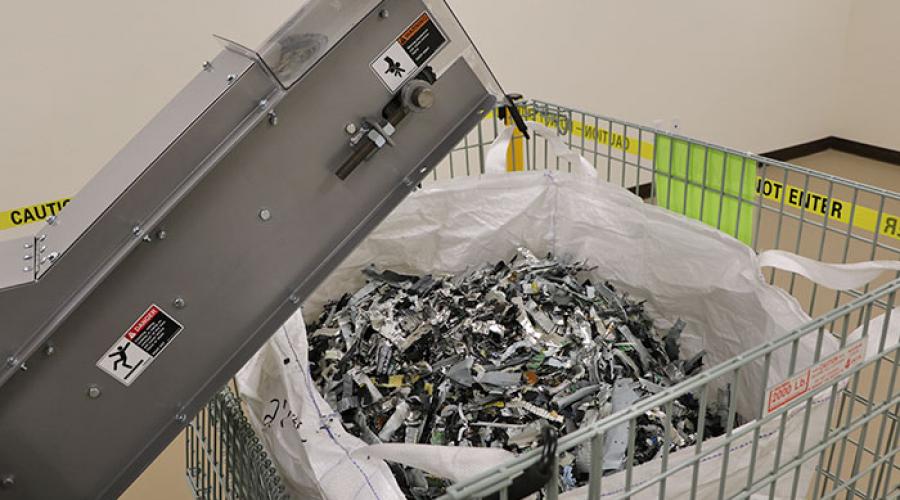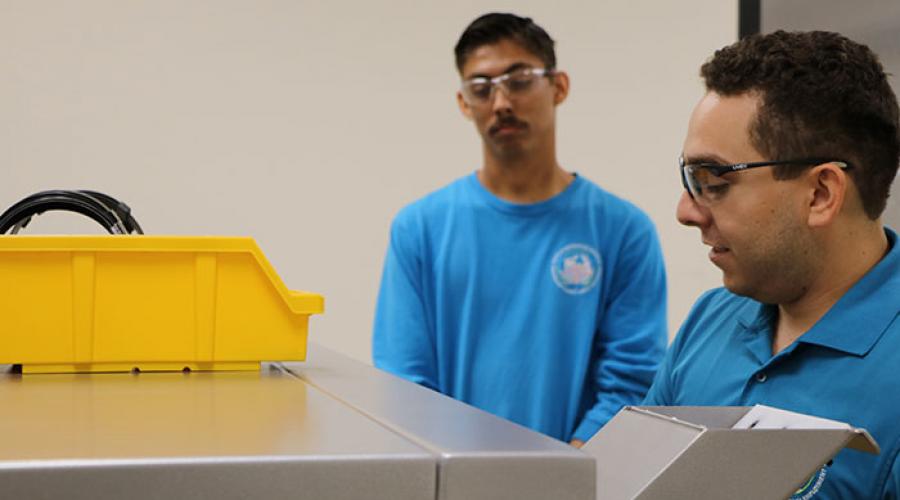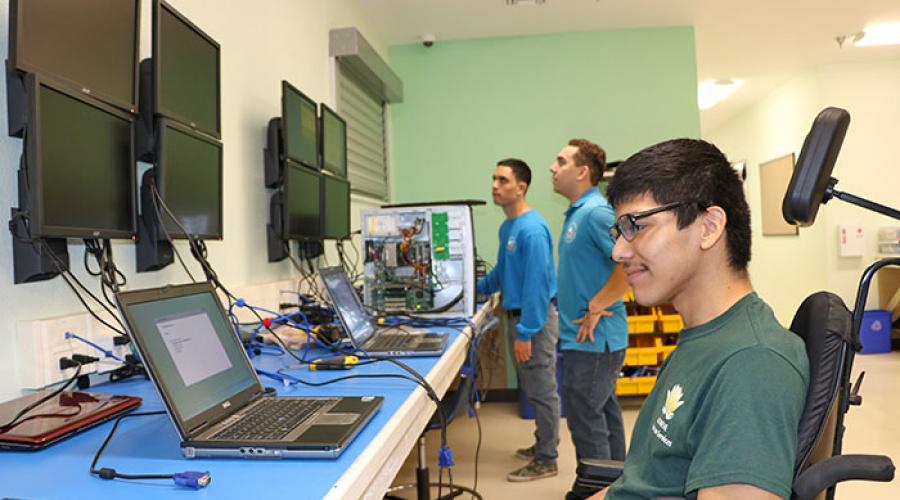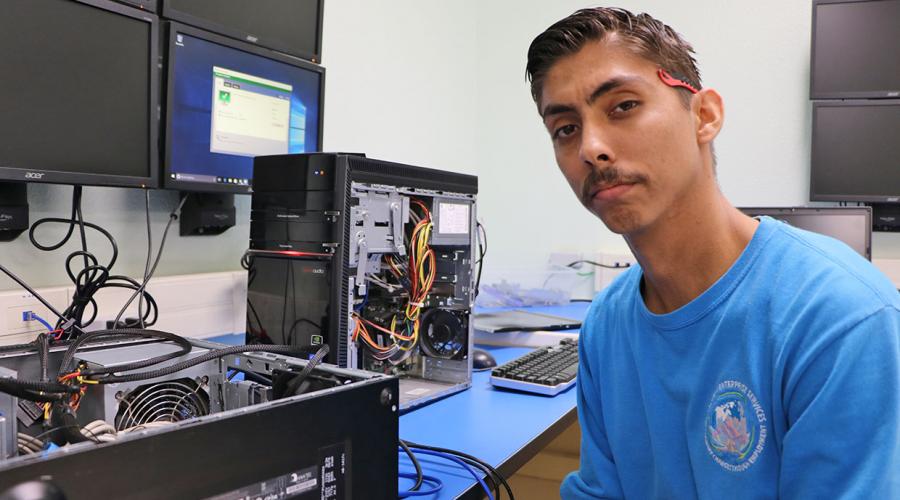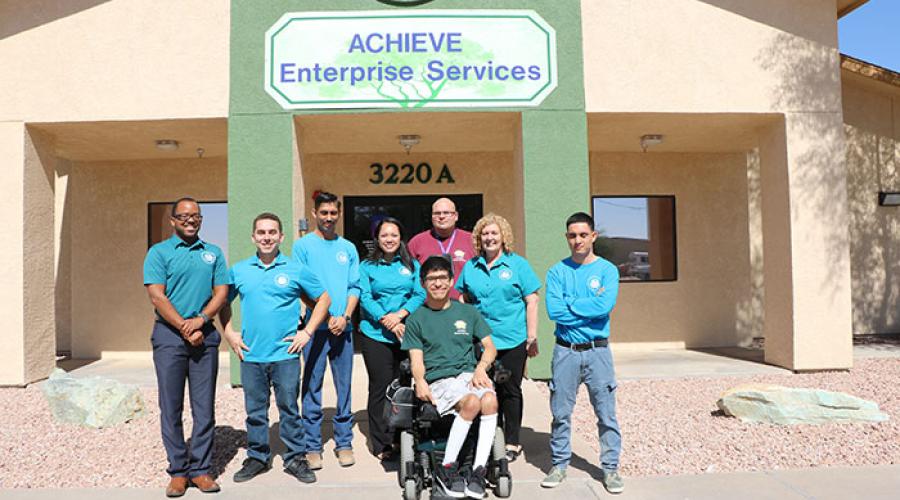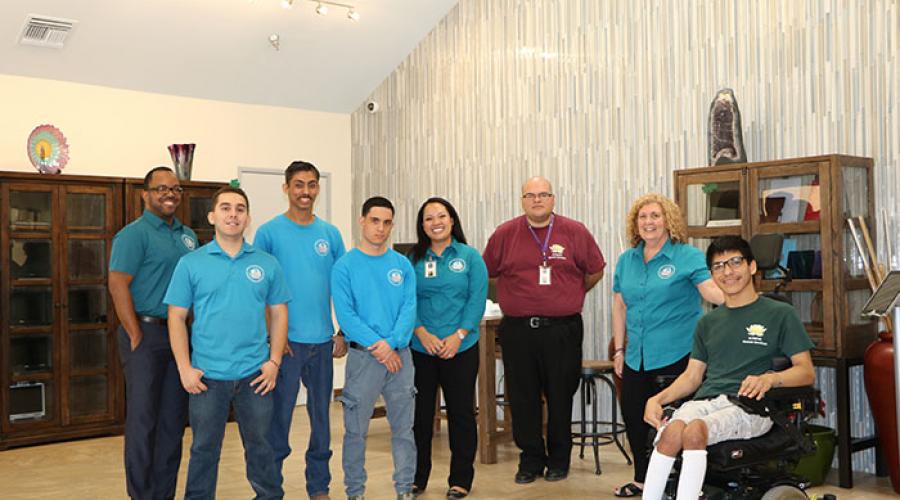Arizona Company Tackling Global Environmental Issues
Electronic waste (e-waste) is a growing, global issue driven largely by the demand for the latest technology and the rapid rate at which it becomes obsolete. According to the Pew Charitable Trust, millions of tons of electronics are dumped into landfills each year. But unlike other types of waste, electronics don’t just decompose.
The World Health Organization estimates that roughly 70% of the heavy metals found in landfills globally, stems from e-waste like cell phones, computers and televisions, which can produce hazardous chemicals such as mercury, lead and cadmium.
“These items can have a detrimental effect on the environment,” says Carol Carr, CEO of ACHIEVE Human Services Inc., a Community Rehabilitation Program (CRP) that serves those with disabilities who are seeking employment training and career opportunities. Carr explains e-waste can leach those chemicals into our soil and water supply.
One avenue in which ACHIEVE is making a difference is through ACHIEVE Enterprise Services (AES), the social enterprise component of the agency.
Through AES, Carr and her team of technical geniuses are on a mission to free landfills of e-waste, while at the same time, tackling another big issue—changing the public’s perception of those with disabilities.
“We work with people of all disabilities,” says Carr. “Primarily we do a lot of the intellectual and developmental disabilities, but we cover the full gamut, and hopefully, get them out into the community where they can be employed by other businesses.” The majority of Carr’s staff receive services from the Department of Economic Security’s Division of Developmental Disabilities. ACHIEVE is also affiliated with the DES Rehabilitation Services Administration.
“I’ve learned a lot of things like the process of refurbishing computers,” explains 19-year-old Andrew Felix. “They are very interested in helping me [learn] everything about computers. They make the job very easy for me to do.”
Through AES, Andrew has learned to take an old computer, run erasing software, reinstall the system and make sure all the programs work. He adds, “The best part is that I can say ‘Oh, I took this old computer and made it newer in a sense. I finished it.’”
Under the supervision of job coach Orlando Salgado, the AES team has become the go-to solution in Arizona for many government agencies and businesses in need of a secure, safe and reliable way to get rid of old electronics.
“We go into the community and sometimes pick up pallets of electronics that might have ended up in the dump,” Salgado says. Irreparable electronics are securely wiped and recycled for precious metals. Other items can be refurbished and resold in the AES storefront.
“This is a team of very smart individuals,” adds Salgado. “I thought I had all this computer stuff nailed down, but these guys teach me something new every day.”
Antonio Navarrete says it’s a collaborative and innovative environment. “Orlando values our input. For example, if I think I can do something in a more efficient way, he is always willing to try it out.”
“Many focus on a disability, but we focus on abilities,” responds Salgado.
AES also donates refurbished electronics to schools and community members. HR Manager, William Stewart, recalls a recent job fair where AES donated a computer to a woman who had never owned one and was overwhelmed trying to find work without one. “The woman just started crying. She was there to get her resume looked at so she could go to a different job fair the next day. She was so grateful and thankful,” he remembers.
While AES’ mission of eradicating e-waste and changing the perception of individuals with disabilities seems to be a tall order, Carr is confident that the future is bright for her trailblazing social enterprise and its team of innovators.
“It’s a great program,” she says. “In addition to making it a social enterprise that employs and trains people with special abilities, AES provides highly technical and high-paying jobs for these individuals who might have been overlooked for similar opportunities elsewhere,” she says.
“Everyone is capable of doing. Don’t talk to me about what can’t be done. Let’s talk about how we’re going to make it happen!”
By Vielka Atherton


